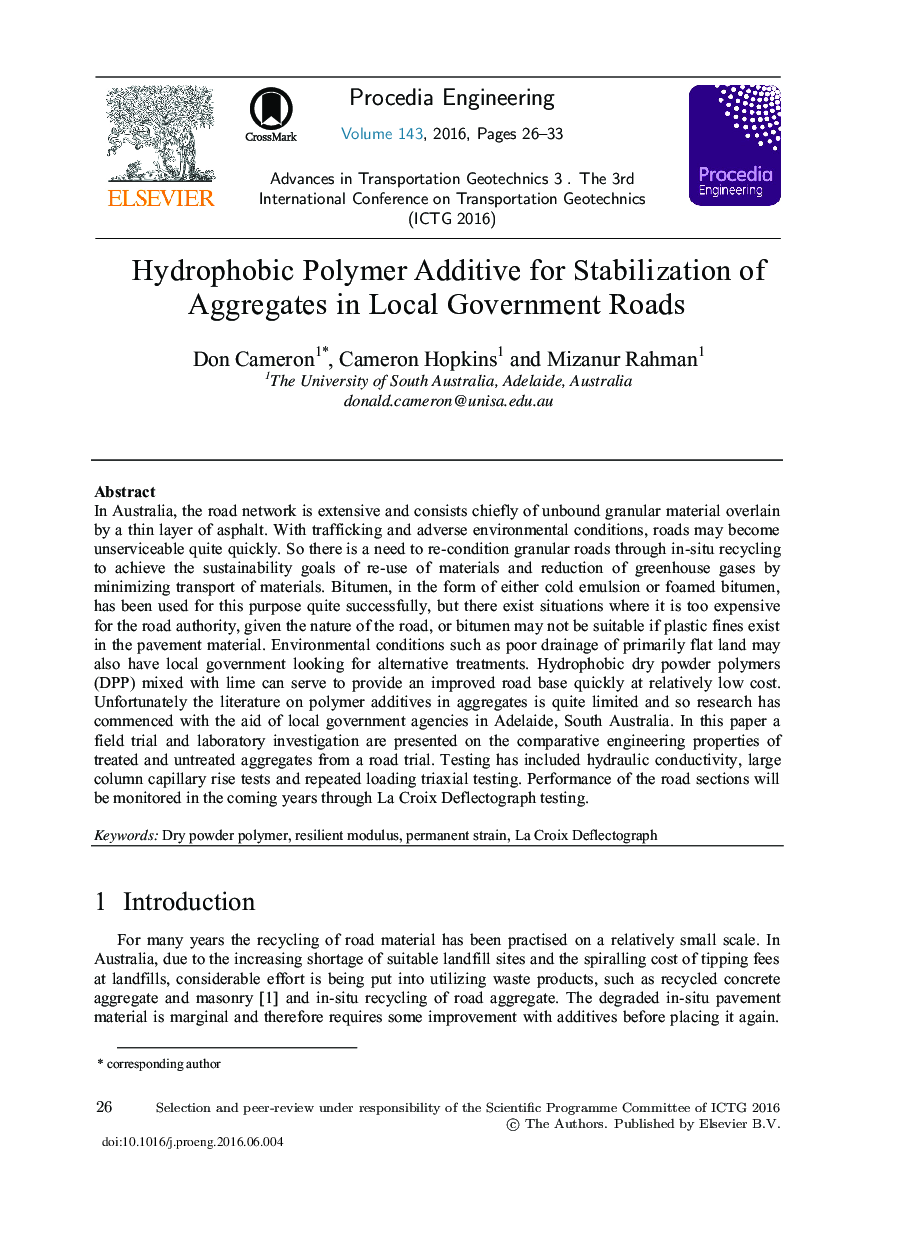| Article ID | Journal | Published Year | Pages | File Type |
|---|---|---|---|---|
| 854188 | Procedia Engineering | 2016 | 8 Pages |
Abstract
In Australia, the road network is extensive and consists chiefly of unbound granular material overlain by a thin layer of asphalt. With trafficking and adverse environmental conditions, roads may become unserviceable quite quickly. So there is a need to re-condition granular roads through in-situ recycling to achieve the sustainability goals of re-use of materials and reduction of greenhouse gases by minimizing transport of materials. Bitumen, in the form of either cold emulsion or foamed bitumen, has been used for this purpose quite successfully, but there exist situations where it is too expensive for the road authority, given the nature of the road, or bitumen may not be suitable if plastic fines exist in the pavement material. Environmental conditions such as poor drainage of primarily flat land may also have local government looking for alternative treatments. Hydrophobic dry powder polymers (DPP) mixed with lime can serve to provide an improved road base quickly at relatively low cost. Unfortunately the literature on polymer additives in aggregates is quite limited and so research has commenced with the aid of local government agencies in Adelaide, South Australia. In this paper a field trial and laboratory investigation are presented on the comparative engineering properties of treated and untreated aggregates from a road trial. Testing has included hydraulic conductivity, large column capillary rise tests and repeated loading triaxial testing. Performance of the road sections will be monitored in the coming years through La Croix Deflectograph testing.
Keywords
Related Topics
Physical Sciences and Engineering
Engineering
Engineering (General)
Authors
Don Cameron, Cameron Hopkins, Mizanur Rahman,
